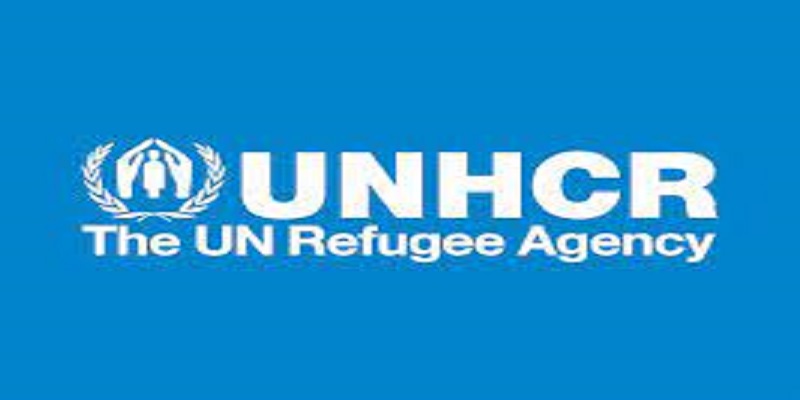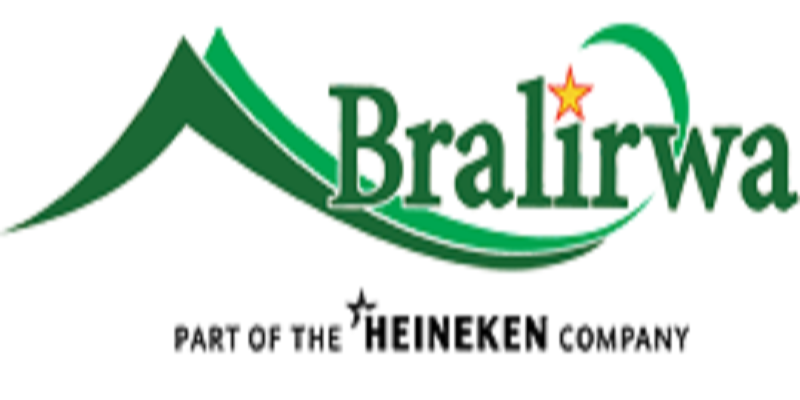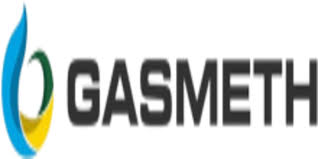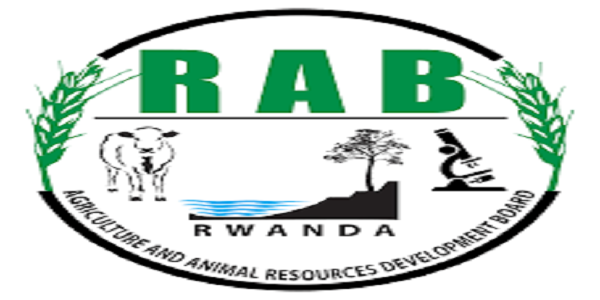IT Associate at United Nations High Commissioner for Refugees: (Deadline 6 February 2025)
Standard Job Description
IT Associate
Organizational Setting and Work Relationships
Under the overall supervision of a (Senior) IT Officer, the IT Associate provides reliable and timely IT services on the application and infrastructure of UNHCR standard IT services in the Area of Responsibility (AoR). S/he normally receives technical guidance from a (Senior) IT Officer for the Telecom/IT infrastructure in the region in which the field or emergency operation exists. In offices where there is no IT Officer, direct supervision may be exercised by the (Snr) Admin Officer as applicable in the duty station.
All UNHCR staff members are accountable to perform their duties as reflected in their job description. They do so within their delegated authorities, in line with the regulatory framework of UNHCR which includes the UN Charter, UN Staff Regulations and Rules, UNHCR Policies and Administrative Instructions as well as relevant accountability frameworks. In addition, staff members are required to discharge their responsibilities in a manner consistent with the core, functional, cross-functional and managerial competencies and UNHCR’s core values of professionalism, integrity and respect for diversity.
Duties
– Assist in on-site needs assessment and installation and maintenance of UNHCR Telecommunications and IT equipment.
– In consultation with the supervisor, establish the IT requirements in field operations, considering the overall IT and Telecom strategy of the region, the operational needs and the security constraints.
– Install and configure the most appropriate type of UNHCR IT and Telecommunications systems (HF, VHF, UHF, Microwave Links, Telephony, and satellite systems) to meet the field and emergency operations immediate IT needs.
– Ensure that the equipment under his/her responsibility is in good working condition, by inspecting regularly the hardware and installations. If required, arrange promptly repairs or replacement as necessary according to established procedures.
– Maintain records of the installations and repairs/replacements done and keep the supervisor fully informed on the status of the equipment.
– Provide each office, where equipment is installed, with full information for their asset management records.
– If applicable, keep a proper inventory level of all sites spares and return spare parts for repair/replacement.
– Monitor and maintain the LAN, Network Servers, Printers, LAN points, Hubs, Patch pane, etc. to prevent faults occurring.
– Add or remove users from the Network.
– Assist in the maintenance of accurate records of users and usage of the Network.
– Carry out minor hardware maintenance.
– Provide Technical Briefing/Training on the equipment to local IT resources and users, including IPs, ensuring that they are able to maintain/use the equipment.
– Assist in the development and configuration of IT and Telecom Equipment/Kits used in field operations and emergencies.
– Decide on appropriate resolution to incidents / problems.
– Escalate issues to supervisor if incident / problem cannot be resolved with scope of responsibility.
– Support the identification and management of risks and seek to seize opportunities impacting objectives in the area of responsibility. Ensure decision making in risk based in the functional area of work. Raise risks, issues and concerns to a supervisor or to relevant functional colleague(s).
– Perform other related duties as required.
Minimum Qualifications
Years of Experience / Degree Level
For G6 – 3 years relevant experience with High School Diploma; or 2 years relevant work experience with Bachelor or equivalent or higher
Field(s) of Education
Not applicable.
Certificates and/or Licenses
Information Technology;
(Certificates and Licenses marked with an asterisk* are essential)
Relevant Job Experience
Essential
Experience relevant to the function or particularly on HF/VHF radio or IT systems, PAMA satellite systems, PABX, Cisco routers and satellite modems.
Desirable
Hands-on experience with wireless and VoIP systems, electricity, generators, lightning protection an asset. Previous experience in Emergencies is an advantage.
Functional Skills
TR-Training – Virtual and face to face
IT-Computer Literacy
IT-Microsoft Office Productivity Software
(Functional Skills marked with an asterisk* are essential)
Language Requirements
For International Professional and Field Service jobs: Knowledge of English and UN working language of the duty station if not English.
For National Professional jobs: Knowledge of English and UN working language of the duty station if not English and local language.
For General Service jobs: Knowledge of English and/or UN working language of the duty station if not English.
All UNHCR workforce members must individually and collectively, contribute towards a working environment where each person feels safe, and empowered to perform their duties. This includes by demonstrating no tolerance for sexual exploitation and abuse, harassment including sexual harassment, sexism, gender inequality, discrimination and abuse of power.
As individuals and as managers, all must be proactive in preventing and responding to inappropriate conduct, support ongoing dialogue on these matters and speaking up and seeking guidance and support from relevant UNHCR resources when these issues arise.This is a Standard Job Description for all UNHCR jobs with this job title and grade level. The Operational Context may contain additional essential and/or desirable qualifications relating to the specific operation and/or position. Any such requirements are incorporated by reference in this Job Description and will be considered for the screening, shortlisting and selection of candidates.
Desired Candidate Profile
The desired candidate must possess experience in planning, managing, supporting, and maintaining ICT services in a large organization, able to carry out and oversee ICT hardware installations and able to provide IT support at a systems level.
In addition, the incumbent should demonstrate a strong background in registration and refugee data management. Proficiency in ProGres modules is must. Comprehensive knowledge and expertise in ICT tools and systems is a requirement. Expertise in personal data protection principles and practices is essential to assure safeguard of individual data of the persons we serve.
The ideal candidate will have a proactive and results-driven approach, with the ability to operate effectively under pressure while maintaining a commitment to UNHCR’s core values and principles.
Required languages (expected Overall ability is at least B2 level):
Desired languages
Operational context
Occupational Safety and Health Considerations:
Nature of Position:
Living and Working Conditions:
Additional Qualifications
Skills
IT-Computer Literacy, IT-Microsoft Office Productivity Software, TR-Training – Virtual and face to face
Education
Certifications
Information Technology – Other
Work Experience
Competencies
Accountability, Analytical thinking, Client & results orientation, Commitment to continuous learning, Communication, Empowering & building trust, Innovation & creativity, Organizational awareness, Teamwork & collaboration, Technological awareness
UNHCR Salary Calculator
https://icsc.un.org/Home/SalaryScales
Compendium
Additional Information
N/A
The English version is considered original and authoritative, translation to other language(s) serve the purpose of advertisement of local positions where applicable but are not considered as official translations
N/A
Functional clearance
This position doesn’t require a functional clearance
Field Security Associate at United Nations High Commissioner for Refugees, Deadline 6 February 2025
Target Start Date
2025-04-01
Deadline for Applications
February 6, 2025
Standard Job Description
Field Security Associate
Organizational Setting and Work Relationships
The Field Security Associate provides support to all security related aspects of field operations including Staff, premises and asset security.
The incumbent is supervised by a Senior Officer (FSA or Head of Office) who defines general work objectives and provides necessary advice and guidance. The incumbent maintains regular contact on a working level on routine issues with other UNHCR staff members, UN agencies, NGOs, implementing partners and Host Government Security authorities (HGS) in the area to facilitate the operation.
The duty of the incumbent is to support and monitor the management of security issues.
All UNHCR staff members are accountable to perform their duties as reflected in their job description. They do so within their delegated authorities, in line with the regulatory framework of UNHCR which includes the UN Charter, UN Staff Regulations and Rules, UNHCR Policies and Administrative Instructions as well as relevant accountability frameworks. In addition, staff members are required to discharge their responsibilities in a manner consistent with the core, functional, cross-functional and managerial competencies and UNHCR¿s core values of professionalism, integrity and respect for diversity.
Duties
– Provide assistance to the supervisor in evaluating the level of risk and assessing the existing security measures for the UNHCR staff, operations, premises, partners and persons of concern.
– Conduct regular security assessment missions to the field as required in coordination with UNDSS/other agencies; gather and analyse information about the security situation during field missions.
– Be aware of security protocols and procedures in place in accordance with the UNSMS policies, UNHCR Policies and the, Security Risk Management process for the designated area ;
– Conduct checks for compliance and advise management on any deficiencies.
– Monitor the physical security of UNHCR premises and reports on deficiencies.
– Monitor and supervise the guard force In accordance with relevant UNSMS policies and guidance.
– Assist UNHCR Protection Colleagues in efforts to ensure the physical protection and security of refugees and other persons of concern.
– Provide support during implementation of security-related projects.
– Assist in the monitoring, updating and reporting of security-related events.
– Assist in the processing of administrative security issues.
– Maintain relations and cooperation with UN security management system actors, local law enforcement agencies, civil authorities and other relevant agencies.
– Provide security briefings and training to UNHCR staff, and as appropriate partner staff, on relevant security risk management processes and measures for the country concerned to include security situation updates, , the warden system, communication notification and reporting procedures, travel planning procedures road air and fire safety.
– Respond to staff queries on security issues and provide immediate assistance as required.
– Provide security-related advice to the manager and other staff.
– Maintain liaison and build relationships with Host Government Security Forces and security counterparts.
– Support the identification and management of risks and seek to seize opportunities impacting objectives in the area of responsibility. Ensure decision making in risk based in the functional area of work. Raise risks, issues and concerns to a supervisor or to relevant functional colleague(s).
– Perform other related duties as required.
Minimum Qualifications
Education & Professional Work Experience
Years of Experience / Degree Level
For G6 – 3 years relevant experience with High School Diploma; or 2 years relevant work experience with Bachelor or equivalent or higher
Field(s) of Education
Not applicable
Certificates and/or Licenses
Security and Safety
(Certificates and Licenses marked with an asterisk* are essential)
Relevant Job Experience
Essential
Not specified
Desirable
High level of knowledge in the security field
Functional Skills
IT-Computer Literacy
FS-Field Security Operations
FS-Security Analysis
CO-Cross-cultural communication
(Functional Skills marked with an asterisk* are essential)
Language Requirements
For International Professional and Field Service jobs: Knowledge of English and UN working language of the duty station if not English.
For National Professional jobs: Knowledge of English and UN working language of the duty station if not English and local language.
For General Service jobs: Knowledge of English and/or UN working language of the duty station if not English.
All UNHCR workforce members must individually and collectively, contribute towards a working environment where each person feels safe, and empowered to perform their duties. This includes by demonstrating no tolerance for sexual exploitation and abuse, harassment including sexual harassment, sexism, gender inequality, discrimination and abuse of power.
As individuals and as managers, all must be proactive in preventing and responding to inappropriate conduct, support ongoing dialogue on these matters and speaking up and seeking guidance and support from relevant UNHCR resources when these issues arise.
This is a Standard Job Description for all UNHCR jobs with this job title and grade level. The Operational Context may contain additional essential and/or desirable qualifications relating to the specific operation and/or position. Any such requirements are incorporated by reference in this Job Description and will be considered for the screening, shortlisting and selection of candidates.
Desired Candidate Profile
The ideal candidate should have previous field experience/ knowledge working with refugees and mixed populations. The incumbent should have extensive experience in security management, humanitarian affairs, or related fields, with a proven track record of managing security operations preferably within the UN system. The candidate should possess a thorough understanding of UNHCR’s roles and responsibilities in refugee response, particularly in managing security-related challenges in camps and host community settings. Should be able to build capacity and guidance to field staff in implementing security protocols.
A solid background in risk assessment, incident analysis, and crisis management is essential to ensure the safety of operations in dynamic and challenging environments. Ability to analyze identify risks and develop innovative solutions to mitigate these challenges.
He/she should have the ability to represent UNHCR effectively at the field level, advocating for the safety and security of forcibly displaced persons and ensuring adherence to international standards and best practices in humanitarian security management.
Essential Relevant Job Experience
• First Aid training, with the ability to respond to emergencies effectively.
• Ability to use GIS tools for mapping and security analysis.
• Experience working in refugee, displaced, or conflict-affected contexts.
Required languages (expected Overall ability is at least B2 level):
Desired languages
Operational context
Occupational Safety and Health Considerations:
Nature of Position:
Living and Working Conditions:
Additional Qualifications
Skills
CO-Cross-cultural communication, FS-Field Security Operations, FS-Security Analysis, IT-Computer Literacy
Education
Certifications
Safety and Security – Other
Work Experience
Competencies
Accountability, Analytical thinking, Change capability & adaptability, Client & results orientation, Commitment to continuous learning, Communication, Empowering & building trust, Judgement & decision making, Organizational awareness, Political awareness, Teamwork & collaboration
UNHCR Salary Calculator
https://icsc.un.org/Home/SalaryScales
Compendium
Additional Information
N/A
The English version is considered original and authoritative, translation to other language(s) serve the purpose of advertisement of local positions where applicable but are not considered as official translations
N/A
Functional clearance
This position doesn’t require a functional clearance
Associate Economist at United Nations High Commissioner for Refugees: (Deadline 6 February 2025)
Deadline for Applications
February 6, 2025
Standard Job Description
Associate Economist
Organizational Setting and Work Relationships
Framed by the Global Compact for Refugees (GCR) and UNHCR’s mission to find solutions to refugee situations, strengthened cooperation with development and private sector partners is essential. The increasing number of refugees and internally displaced persons in protracted displacement situations, together with the increasing scale of irregular migration, large-scale refugee movements, and costs of responding to humanitarian situations, have placed forced displacement high on the global agenda. These elements have further driven the realization that humanitarian support must be complemented by development and private sector actors to lift displaced populations out of poverty, enable solutions, and encourage an area based approach to poverty reduction.
Within UNHCR, the Division of Resilience and Solutions (DRS) was formed to address these challenges, in part by broadening strategic partnerships with key actors in these areas, including importantly the World Bank and other multilateral development banks and in so doing aligning approaches by Government. To support investments by development actors in area based approaches including both forcibly displaced and their hosts, requires better data and standardized information about refugees and host community households, particularly in relation to their socio-economic status or multidimensional poverty status. Accurate data on welfare conditions is also needed for UNHCR and partner operations, including cash, livelihoods, and education programming, welfare targeting and monitoring of the Sustainable Development Goals. Finally, comparable information for both refugees and host community members is a pre-requisite for measuring changes in welfare required to inform medium-term programming with development partners and national governments. DRS together with the World Bank Poverty Global Practice supported by the UNHCR World Bank Joint Data Center manage the partnership and play the global coordination role for the institution in working with National Statistics Offices to include forcibly displaced into National Poverty Assessments.
The Associate Economist will contribute to the Global Compact for Refugees (GCR) objectives: 1 – Ease the pressures on host countries and 2 – Enhance refugee self-reliance. Concretely, the incumbent will contribute to the indicators measuring the success of the GCR and particularly the proportion of refugees living below the national poverty line in the host country. Depending on where s/he is based, the reporting lines will differ. If the Associate Economist is based in Headquarters, s/he will report to the DRS Partnership Analytics Research and Knowledge (PARK) section. If s/he is based in a country or regional office, will report to either the Representative or Deputy Representative (Programme), or in some cases Head of Sub-Office or Senior Operations Officer. In all cases, there will be a dotted line to DRS PARK for technical functional clearance of candidates and for technical oversight of economics products. The Associate Economist will work closely with Programme and Protection colleagues in addition to Senior Management in the operation as well as Bureaux and technical unit key, external stakeholders and development agencies, including the World Bank, government agencies, national statistical agencies, and other operational partners.
All UNHCR staff members are accountable to perform their duties as reflected in their job description. They do so within their delegated authorities, in line with the regulatory framework of UNHCR which includes the UN Charter, UN Staff Regulations and Rules, UNHCR Policies and Administrative Instructions as well as relevant accountability frameworks. In addition, staff members are required to discharge their responsibilities in a manner consistent with the core, functional, cross-functional and managerial competencies and UNHCR’s core values of professionalism, integrity and respect for diversity.
Duties
Project Management
– Support the design and implementation of assessments and other data-driven products related to the socio-economic welfare of refugees, forcibly displaced persons and host communities.
– Facilitate and support collaboration with partners and activities in the collection of comparable socio-economic (poverty) data on forcibly displaced.
– Support data collection activities, as appropriate. This may take place at all stages of data collection (preparation, survey design, sampling, onsite data collection oversight and supervision and quality assurance, data analysis and report writing).
– Support data analysis using econometric programs (R, Stata).
Data Collection and Analysis
– Consolidate raw primary and secondary datasets into final datasets to be used for analysis, as needed. This will involve creating and merging various sources of data and may require programming matching algorithms, linking up with field staff for additional information, and performing manual matching.
– Provide secondary data analysis as appropriate.
– Clean datasets and support creation of necessary indicators.
– For any field survey, assist in programming the instrument and support development of protocols to ensure high quality data.
– Prepare and document relevant datasets for archiving on the UNHCR Microdata Library.
– Support the preparation of research papers including formatting and creating tables, graphs, and related analysis.
– Engage with country operation, partners and government, as appropriate, in the design and implementation of data collection and research projects.
Coordination
– Facilitate good communication and coordination among members of the country team, Governments, researchers and partners, serving as a link between these parties.
– Support drafting and writing of presentations, analytical reports, research and policy briefs.
– Identify research opportunities and contribute to proposals for research partnerships and funding.
– Support preparations of reports on achievements in data collection and analysis.
– Support the identification and management of risks and seek to seize opportunities impacting objectives in the area of responsibility. Ensure decision making in risk based in the functional area of work. Raise risks, issues and concerns to a supervisor or to relevant functional colleague(s).
– Perform other related duties as required.
Minimum Qualifications
Education & Professional Work Experience
Years of Experience / Degree Level
For P2/NOB – 3 years relevant experience with Undergraduate degree; or 2 years relevant experience with Graduate degree; or 1 year relevant experience with Doctorate degree
Field(s) of Education
Economics; Statistics; International Business or other related field
Certificates and/or Licenses
Not specified
Relevant Job Experience
Essential
At least three (3) years of demonstrated experience in economics, analysing data and/or conducting research.
Desirable
Familiarity with processes of the World Bank, the African Development Bank or other international financial institutions, bilateral development agencies or research institutions. Familiarity with displacement and development issues. Experience of working with the private sector. Experience working in applied development economics. Experience in poverty modelling. Experience leading primary data collection effort and data analysis. Experience of working with synergies between the humanitarian-development nexus. Demonstrated skills and experience with measuring welfare through socio-economic profiling. Demonstrated experience with analysis of large datasets. Demonstrated expertise in utilization of relevant statistical software (R, Stata). Ability to work independently with limited supervision and deliver high quality products. Demonstrated ability to think creatively, and to explore, harness and translate innovative concepts into relevant practical approaches for programming, policy, and advocacy purposes. Demonstrated ability to think creatively, and to explore, harness and translate innovative concepts into relevant practical approaches for programming, policy, and advocacy purposes.
Functional Skills
CO-Drafting and Documentation
SO-Networking
MG-Project Management
EC-Statistical and modelling software
DM-Data Collection and Analysis
IM-Statistics Analysis
(Functional Skills marked with an asterisk* are essential)
Language Requirements
For International Professional and Field Service jobs: Knowledge of English and UN working language of the duty station if not English.
For National Professional jobs: Knowledge of English and UN working language of the duty station if not English and local language.
For General Service jobs: Knowledge of English and/or UN working language of the duty station if not English.
All UNHCR workforce members must individually and collectively, contribute towards a working environment where each person feels safe, and empowered to perform their duties. This includes by demonstrating no tolerance for sexual exploitation and abuse, harassment including sexual harassment, sexism, gender inequality, discrimination and abuse of power.
As individuals and as managers, all must be proactive in preventing and responding to inappropriate conduct, support ongoing dialogue on these matters and speaking up and seeking guidance and support from relevant UNHCR resources when these issues arise.This is a Standard Job Description for all UNHCR jobs with this job title and grade level. The Operational Context may contain additional essential and/or desirable qualifications relating to the specific operation and/or position. Any such requirements are incorporated by reference in this Job Description and will be considered for the screening, shortlisting and selection of candidates.
Desired Candidate Profile
Familiarity with displacement and development issues. Experience of working with MDBs and the private sector. Experience working in applied development economics. Experience in poverty modelling. Experience leading primary data collection effort and data analysis. Experience of working with synergies between the humanitarian-development nexus. Demonstrated skills and experience with measuring welfare through socio-economic profiling. Demonstrated experience with analysis of large datasets. Demonstrated expertise in utilization of relevant statistical software (R, Stata). Ability to work independently with limited supervision and deliver high quality products. Demonstrated ability to think creatively, and to explore, harness and translate innovative concepts into relevant practical approaches for programming, policy, and advocacy purposes. Demonstrated ability to think creatively, and to explore, harness and translate innovative concepts into relevant practical approaches for programming, policy, and advocacy purposes.
Required languages (expected Overall ability is at least B2 level):
Desired languages
Operational context
Occupational Safety and Health Considerations:
To view occupational safety and health considerations for this duty station, please visit this link:
Nature of Position:
Rwanda is stable country with a sustained economic growth over the last two decades, despite the COVID-19 pandemic which temporarily dampened growth worldwide. The GDP per capita has grown from $125.5 (1994) to $833 (2021) and the current Government programme Vision 2050 projects the long-term strategic direction for the Country to reach upper middle-income status by 2035 and high income by 2050. The first seven years of the path to Rwanda’ s Vision 2050 are actualized through the National Strategic Transformation (NST1 2017-2024), providing pillars for accelerated transformation in the areas of economy, social protection and governance, while emphasizing sustainability of results and inclusiveness of development for all, including refugees. The NST1 integrates global, regional commitments and international frameworks such as the Global Compact for Refugees. The next NST is due to be released mid-2024, and UNHCR provides inputs to this planning process through the UN Country Team (UNCT).
Rwanda hosts over 135,000 refugees, mainly from Burundi and the DRC, in 5 camps throughout the country. The Government of Rwanda, UNHCR, and other humanitarian partners work together to ensure the protection and well-being of these refugees, as well as their socio-economic inclusion. The UNHCR operation in Rwanda is dedicated to providing refugees and asylum seekers with protection, humanitarian assistance, and opportunities for self-reliance. This includes access to education, healthcare, shelter, and livelihood support. The Associate Economist will play a crucial role in advancing UNHCR’s strategic objectives within the country.
Within this framework, there are many opportunities for the inclusion of refugees within Rwanda’s development. To support this aim, the Ministry in charge of Emergency Management (MINEMA) of the Government of Rwanda and UNHCR launched a joint strategy on Economic Inclusion of Refugees and Host Communities for 2021-24 which aims at graduating refugees from dependency on humanitarian assistance.
Adopting the concept of Humanitarian-Peace – Development Nexus
Over the coming years UNHCR will increasingly place emphasis on supporting refugee’s economic inclusion, particularly through working with our development partners such as the World Bank, GiZ, CARE, Caritas and so forth. These partners are also supporting the communities that host refugees to ensure that the overall economy of a region is buoyed up by the presence of refugees.
UNHCR and partners hope to encourage self-reliance, build resilience to shocks and make investments to support the graduation of refugees out of poverty while reducing the potential for frictions within the communities. In addition, UNHCR and partners aim reinforce advocacy and inclusion inputs through gathering, analyzing and disseminating validated data, including socio-economic and demographic data.
Living and Working Conditions:
Additional Qualifications
Skills
CO-Drafting and Documentation, DM-Data Collection and Analysis, EC-Statistical and modelling software, IM-Statistics Analysis, MG-Project Management, SO-Networking
Education
Bachelor of Arts (BA): Economics, Bachelor of Arts (BA): International Business, Bachelor of Arts (BA): Statistics
Certification
Work Experience
Competencies
Accountability, Analytical thinking, Client & results orientation, Commitment to continuous learning, Communication, Empowering & building trust, Judgement & decision making, Organizational awareness, Planning & organizing, Teamwork & collaboration, Technological awareness
UNHCR Salary Calculator
https://icsc.un.org/Home/SalaryScales
Compendium
Additional Information
N/A
The English version is considered original and authoritative, translation to other language(s) serve the purpose of advertisement of local positions where applicable but are not considered as official translations
N/A
Functional clearance
This position requires Functional Clearance




